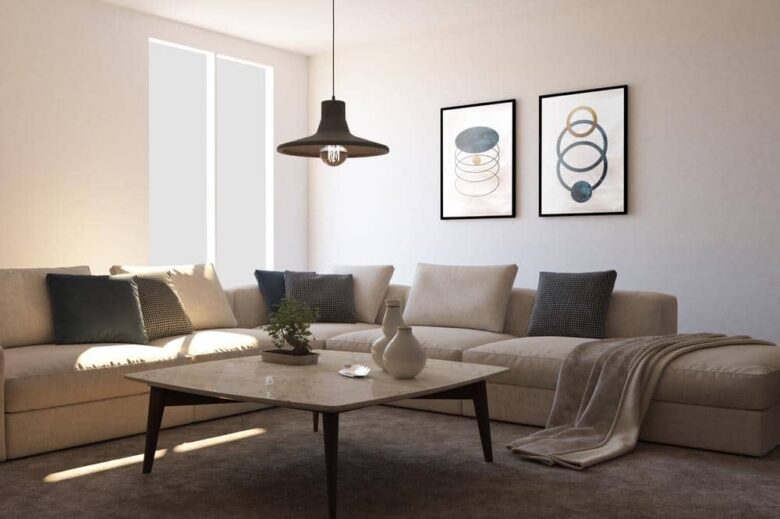A smart, minimalist lifestyle can transform our lives in a society overrun by distractions, materialism, and the noise of digital devices. Minimalism isn’t just about getting rid of unnecessary items; it’s about making room for what truly matters. Combining minimalism with modern, smart technology can make daily life easier and more effortless, saving time and money. This lifestyle encourages conscious choices, giving every item in your home and every tool you use a clear purpose. With the help of smart technology, minimalist living doesn’t mean sacrificing comfort; it means making life more efficient and meaningful, ultimately leading to a better life. With small changes, we can live a clutter-free, balanced, and forward-thinking life that prioritizes quality over quantity.
Minimizing Your Home
The first step to smart, minimalist living is making your home feel light, functional, and stress-free. A minimalist home eliminates items that don’t serve a practical purpose and focuses on creating open, calming spaces. To achieve this, keep only items that are useful or bring you joy, and get rid of things that clutter your space. Neutral colors, natural light, and multifunctional furniture contribute to a clean design. A minimalist home creates an atmosphere of organized, uncluttered, and peaceful living. Smart home technologies like voice assistants, lighting control, and temperature control complement these homes perfectly, making them both stylish and practical.
Integrating Smart Technology into Daily Tasks
When used effectively, technology can make life easier and more stress-free. Smart technologies, like voice assistants, automated appliances, and energy-saving gadgets, can handle repetitive tasks, allowing us to focus on important ones. Smart home systems can remotely control lighting, heating, cooling, and security, making daily life easier and more secure. Investing in multifunctional smart devices is more in line with a minimalist lifestyle than owning an abundance of identical gadgets. For example, a smart speaker can play music, wake you up, and help you with chores. The combination of technology and minimalism can help us live more purposefully and efficiently.
Developing Minimalist Digital Habits
Minimalism isn’t just about the things you own; it also applies to the digital world. Notifications, emails, and constant scrolling can make us feel like we have too much to do. They waste our time and energy. To develop minimalist digital habits, you need to set clear boundaries, eliminate unnecessary apps, and manage screen time wisely. Using productivity tools that integrate with work or taking a break from technology can really help you focus and think clearly. Smart digital living means using technology to enhance our lives, rather than letting it consume our time. By simplifying our digital habits, students, workers, and families can focus on real life instead of being distracted by the noise of the internet.
A Smart, Minimalist Approach to Finances
Smart minimalist living also involves managing your money. Minimalism doesn’t advocate following consumer trends or spending haphazardly. Instead, it advocates planned shopping and financial discipline. Smart budgeting tools, spending trackers, and automated money-saving apps can make managing your money easier. These tools can help us understand where our money goes, minimize unnecessary expenses, and set long-term financial goals. By owning fewer but better-quality items, you can save money and reduce clutter in the long run. The idea is to spend money that reflects your values by choosing truly important experiences and necessities over things that add little value.
Sustainable Minimalist Living
Smart minimalist living benefits the environment by reducing waste and encouraging eco-friendly habits. By choosing fewer, more sustainable, and more energy-efficient products, you protect the environment. Smart home devices, such as solar-powered gadgets, energy-efficient thermostats, and water monitoring systems, can lower energy bills and minimize environmental impact. Minimalist living also encourages more conscious shopping, such as buying secondhand furniture, using reusable items, and supporting eco-friendly brands. This lifestyle is beneficial for both people and the environment.
Prioritizing Mental and Emotional Well-Being
Minimalist smart living isn’t just about physical and digital space; it’s also about clear thinking. Reducing clutter, automating repetitive tasks, and living a purposeful life can help alleviate stress and anxiety. Meditation apps, sleep monitors, and noise-canceling technology are all examples of smart health technologies that can support mental health. Minimalism emphasizes focusing on the present moment and not letting material possessions or excessive technology dominate our lives. We cultivate a lifestyle that promotes our overall well-being by focusing on meaningful relationships, meaningful activities, and self-care.
Conclusion
Minimal smart living isn’t about owning less; it’s about being more mindful of what you do have. We combine minimalist principles with smart technology to live a life that values simplicity, efficiency, and purpose. This approach offers a plan for a balanced and joyful life, from cleaning your home and developing eco-friendly habits to managing your finances and improving your digital well-being. Minimalism teaches us to eliminate unnecessary items, while smart tools help us simplify our daily tasks and increase our efficiency. Together, they bring peace to our homes, our finances, and our minds. When we choose a minimalist, smart lifestyle, we create space for a more meaningful, effortless, and fulfilling life.
FAQs
1. What does smart, simple living mean?
Smart minimalist living combines the principles of minimalism with modern technology. It aims to simplify life by eliminating clutter and using smart technology to make it more comfortable and efficient.
2. How can smart technology contribute to minimalism?
Smart technology can reduce the number of electronic devices you need, automate daily tasks, and save time, energy, and money while keeping your space tidy.
3. Does minimalism improve your mental health?
Yes, minimalism can help you eliminate clutter in both the physical and digital worlds, relieving stress and anxiety and improving your overall well-being.
4. Is it expensive to start a smart, minimalist lifestyle?
Not always. Some smart devices cost money, but minimalists can save money by avoiding unnecessary purchases and only buying things that last.
5. How can you adopt a smart, simple lifestyle?
First, declutter your home and digital space, set financial goals, buy the smart devices you really need, and change your daily habits to support a purposeful, mindful lifestyle.



